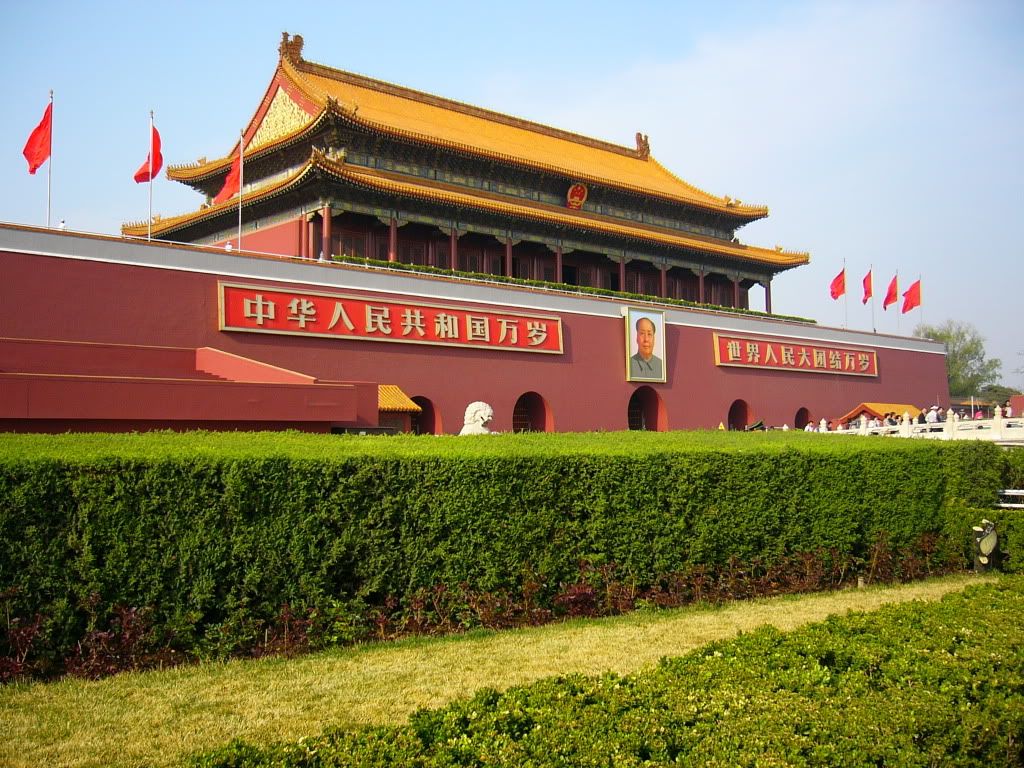Due to a very busy summer, I haven't been posting regularly. With summer vacation wrapping up in the next two weeks, I will try to make a better habit of posting.
Even before my pregnancy, I had a
acquired a fair amount of time spent in Chinese hospitals. I'd
assumed that after having the baby I'd be routinely gaining more
experience in the doctor's office, but that hasn't been the case.
Just another way in which life in China varies from that in America.
 I figured that both the baby and I
would be needing check-ups. In the States, women see the doctor in
the weeks following birth for their post-natal check-up. I was told
that I don't need to visit the doctor unless I am suffering from a
particular problem. Likewise, a Chinese baby may not see the doctor
until he is ill, whereas an American baby would go in every several
weeks as a newborn, steadily tapering off to every few months during
later infancy. William is now four months and has only seen the
doctor once, to have some “work done” on his belly button (the
umbilical cord wasn't detaching). He also sees a nurse once a month
to have his vaccinations.
I figured that both the baby and I
would be needing check-ups. In the States, women see the doctor in
the weeks following birth for their post-natal check-up. I was told
that I don't need to visit the doctor unless I am suffering from a
particular problem. Likewise, a Chinese baby may not see the doctor
until he is ill, whereas an American baby would go in every several
weeks as a newborn, steadily tapering off to every few months during
later infancy. William is now four months and has only seen the
doctor once, to have some “work done” on his belly button (the
umbilical cord wasn't detaching). He also sees a nurse once a month
to have his vaccinations.
 Ah, vaccinations—these seem to be the
new hot button issue among parenting circles in the U.S. More and
more parents are deciding to forgo vaccinations for their children.
In China, the threat of many diseases is still very real. I see
adults who suffer from polio fairly regularly, not to mention, my own
mother struggled with the disease, enduring multiple surgeries as a
child. Moreover, in Chengde, there have been recent outbreaks of both
measles and mumps. For me, the benefits of vaccinations far outweigh
any perceived risks. Furthermore, I don't think opting out of
vaccines is an option in China. My understanding is that it is a
requirement. In any case, William goes out for his monthly shots.
Until quite recently, that was the only time he was “allowed” out
of the house.
Ah, vaccinations—these seem to be the
new hot button issue among parenting circles in the U.S. More and
more parents are deciding to forgo vaccinations for their children.
In China, the threat of many diseases is still very real. I see
adults who suffer from polio fairly regularly, not to mention, my own
mother struggled with the disease, enduring multiple surgeries as a
child. Moreover, in Chengde, there have been recent outbreaks of both
measles and mumps. For me, the benefits of vaccinations far outweigh
any perceived risks. Furthermore, I don't think opting out of
vaccines is an option in China. My understanding is that it is a
requirement. In any case, William goes out for his monthly shots.
Until quite recently, that was the only time he was “allowed” out
of the house.
In late July, William finally reached
100 days (百天), which is a
huge milestone in China. Before this time, infants are not allowed
out of the home except to visit the doctor. They believe babies are
still too weak and can easily catch cold or an illness. In
celebration of William's One Hundred Days, we took him for a photo
shot. This is very popular among families these days. Parents will
do different things to celebrate their child's 100 days, including
taking photos, buying a cake, and having a dinner party. For us, most of the celebrating will be put on hold until William's first birthday.



































